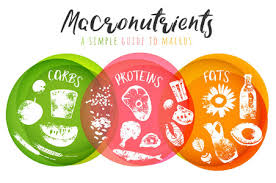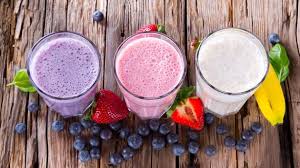The number of people opting for a vegetarian or vegan diet is increasing. A vegetarian diet has several health benefits, including a reduced risk of diabetes, heart disease and even some cancers.

However, some vegetarians eat too many processed foods, which can be high in fat, sugar, and sodium, among other unhealthy ingredients. As a result, children may not get the required amounts of vitamins and minerals from their diets.
Vegetarian meals can be tailored to meet the needs of all ages, including teens, children, pregnant or nursing mothers. One of the most important things you can do is adjust your diet to your specific nutritional needs.
Pay particular attention to the following nutrients in your diet to ensure it contains everything your body needs:
1. Vitamin D and Calcium
Calcium helps in the development and maintenance of teeth and bones. Dairy products are high in calcium. It's also worth noting that dark green vegetables like kale and collard greens are good plant sources when eaten in moderation. Other options include fortified or calcium-fortified cereals, fruit juices, soy yogurt, soy milk, and tofu.
Vitamin D. Milk can also affect bone health. Some soy and rice milks, some cereals, and some margarines contain vitamin D. Be sure to read all food labels. If you don't eat a lot of fortified foods or don't get a lot of sunlight (from plants), you may need a vitamin D supplement.
2. Vitamin B-12
Anti-anemia and red blood cell production requires vitamin B-12. B-12 is mainly found in animal products, so it is difficult for vegetarians to get enough of this vitamin. People following a vegan diet may be deficient in vitamin B-12, and this deficiency goes unnoticed. This is because a vegan diet is rich in a vitamin called folic acid, which can mask a vitamin B-12 deficiency until it becomes severe. For this reason, fortified soy products, vitamin supplements, and vitamin-fortified cereals are all valid options for vegetarians.
3. Protein
Lean protein helps maintain strong and healthy tissues and cells throughout the body. You can get enough protein from dairy and eggs without consuming large amounts. You can also get enough protein if you eat different plant-based foods throughout the day.
4. Omega-3 Fatty Acids
Heart health requires a diet rich in omega-3 fatty acids. Fish- and egg-free diets are generally lower in omega-3 fatty acids because they do not contain them. Essential fatty acids are found in canola oil, walnuts, soybean oil, ground flaxseed, and soybeans. If you're concerned about ingesting plant-based omega-3s, consider a fortified product or supplement, or both.
5. Zinc and Iron

Red blood cells need iron to function properly. Iron is found in a variety of foods, including dried peas and beans, fortified grains, lentils, whole grains, green leafy vegetables, and dried fruits. The recommended iron intake for vegetarians is almost double that of non-vegetarians because iron is not readily absorbed from plants. Make sure to eat foods rich in vitamin C alongside iron-rich foods to help your body absorb iron better.
Zinc, like iron, is more easily absorbed from animal sources. If you eat dairy, cheese is an excellent choice for you. Soy products, lentils, walnuts, and wheat germ are all good sources of zinc. Zinc is an essential component of many enzymes that play a role in cell division and protein synthesis.
6. Joad
One of the most important components of thyroid hormone is iodine. Vegetarians may be at risk of iodine deficiency, and if they don't get enough iodine, they may develop a goiter. Cruciferous vegetables, soybeans, and sweet potatoes can all cause goiter.